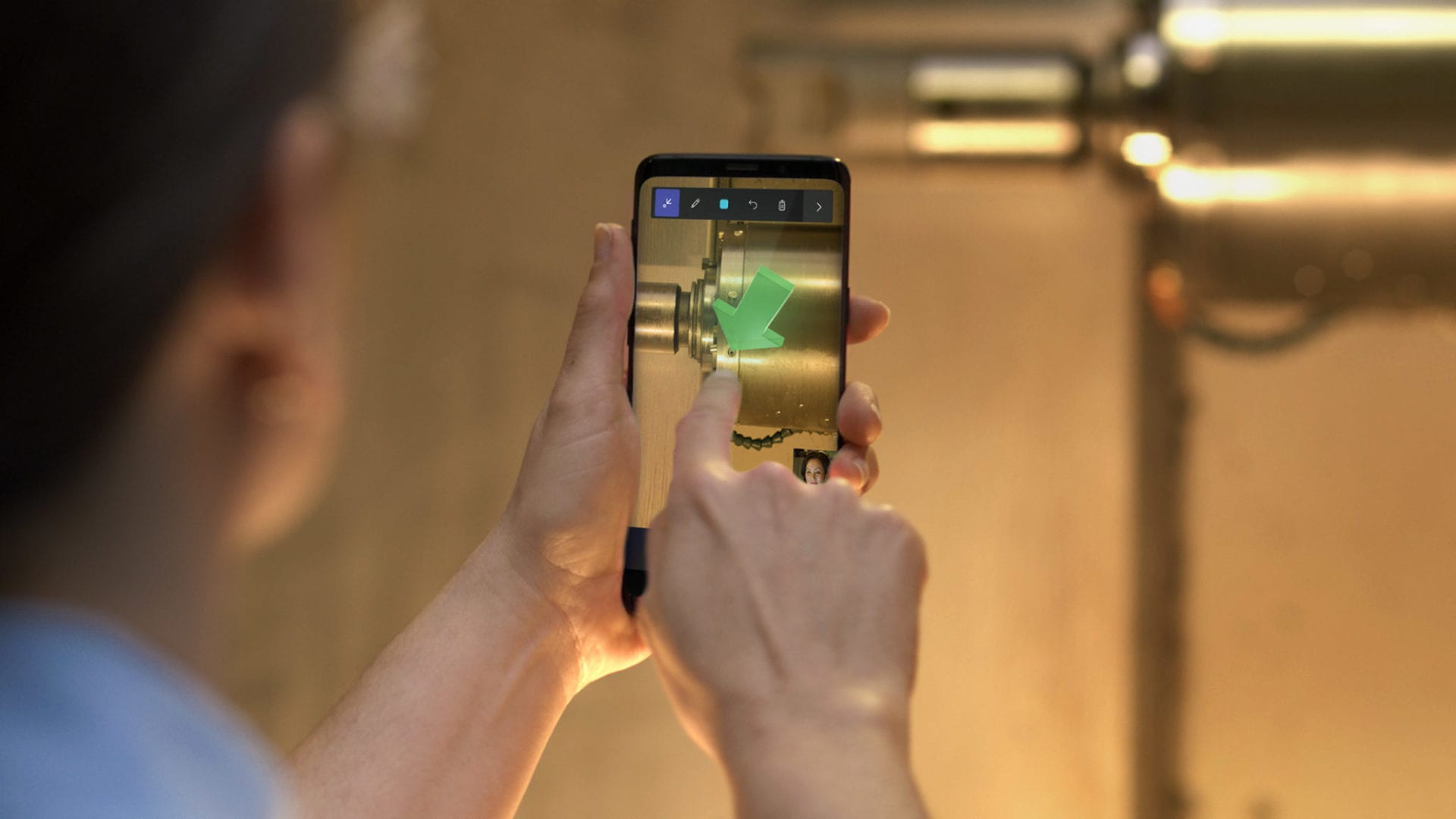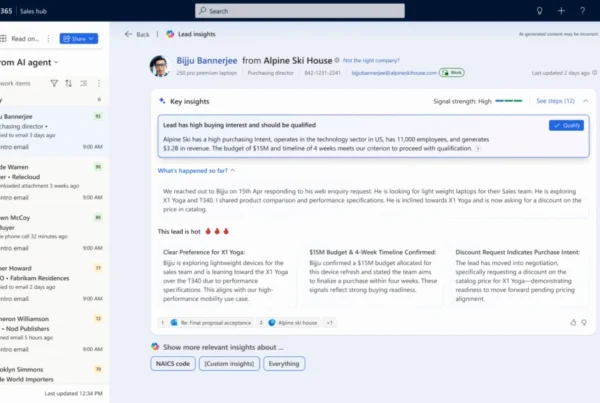
Ecolab’s food safety solutions help to safely produce more than 25 percent of the world’s processed food and 44 percent of the global milk supply. That equates to thousands of food and beverage facilities that depend on world-class, onsite service to ensure the production of safe, quality food or beverages every day.
When the COVID-19 pandemic locked down food and beverage processors, Ecolab faced a monumental problem. How does the global leader in water, hygiene, and infection prevention services ensure continued food safety and product quality without direct access to equipment and personnel?
The Ecolab team turned to augmented reality and remote collaboration technology from Microsoft to bring its expertise onsite, virtually, from thousands of miles away.
Ecolab’s David Goforth, VP Sales North America and Rick Stokes, Area Technical Support Manager recently provided a behind-the-scenes look at how they are using Microsoft Dynamics 365 Remote Assist and Microsoft HoloLens 2 to ensure the highest-quality food and beverage quality. If you’re curious about practical, real-world applications of mixed reality, don’t miss the full conversation hosted by Rodney Clark, Corporate Vice President, IoT & Mixed Reality Sales.
Onsite, hands-on service—virtually
“Our travel has been reduced to almost zero during these last few months due to the COVID situation,” explains David Goforth. “In some cases, our customers are not allowing us entry into their facilities as well, so obviously we had to scramble to try to maintain a high level of service to our customers.”
For a team dependent on field professionals working onsite at food and beverage facilities, COVID lockdowns meant finding fast solutions to tough questions, says Goforth. “How do we assist our field teams and our customers with troubleshooting issues? How do we keep those touchpoints with the customers to ensure they’re producing safe quality foods and beverages?”
By combining HoloLens 2 and Dynamics 365 Remote Assist, the team found a way for account and technical field teams to deliver critical onsite service from miles away. “That has really helped us continue to provide world-class service, without being onsite 100 percent of the time. And it’s really changed the way we look at things and the way we attack our service programs now and moving forward in the future.”
Servicing complex equipment virtually
Rick Stokes shared how an Ecolab technician remotely guided an account manager through complex steps to troubleshoot a problem with a separator—machinery commonly used to separate solids from liquids or material by size. “It’s a pretty complicated piece of equipment, lots of parts to it, and it’s cleaned by an automated program,” explains Stokes. “We were able to ship them a HoloLens and the account manager was able to go into that plant when that separator was being taken apart.”
Using the HoloLens 2 and Dynamics 365 Remote Assist, the account manager live-streamed the teardown to an Ecolab technician remotely, using the built-in video camera in the HoloLens 2. The technician then guided the account manager through troubleshooting and testing, step by step.
“The expert was able to not only watch the live disassembly, but asked the account manager to test a specific area of soil, guiding the account manager’s hands remotely from 1,000 miles away to conclude within that two-hour tear down what was causing the problem.”—Rick Stokes, Area Technical Support Manager
Stokes is excited about the potential to train people by bringing them onsite, virtually, as experts are solving a customer problem in real-time. “We’ve had sessions where we had up to 60 people listening in on a training session about a specific piece of equipment. This should accelerate people who are beginner or intermediate into that expert range much faster, which is important because they’re harder to find than ever.”
A win-win for support, account, and sales teams
Since implementing Dynamics 365 Remote Assist and HoloLens 2 in the field, the Ecolab team has reduced travel costs while improving response times. “We’ve been able to reduce our travel expenses for the SEALS team (Service Excellence Application Leadership Support), as well as for our account managers out in the field,” explains Stokes. “We are able to now troubleshoot our customers’ issues a lot faster, so we’re a lot more efficient in the turn-around time.”
Pre-COVID, the SEALS team scheduled jobs two to six weeks out, according to Stokes. Now, they can respond remotely with two to three engaged SEALS team members, rather than just one technician on the phone. “That’s making customers a lot happier as well,” added Stokes.
The remote service model also opens doors to training for account managers and knowledge sharing with customers. “If [an account manager] has a question about a piece of equipment, we’re able to quickly be able to train them. Or, we’re able to troubleshoot our customers’ issues and help train them as well.”
The team is also looking at how best to incorporate the technology into the sales process as a unique differentiator for faster service. As Goforth explains, “It’s about leading with digital technology—not only in service, but also in our sales platforms.”
Get the full story
The full conversation between Rodney Clark, David Goforth, and Rick Stokes goes deeper into how Ecolab is helps customers ensure food safety HoloLens 2 and Dynamics 365 Remote Assist. Be sure check back for more conversations people and organizations making an impact in the coming weeks.






